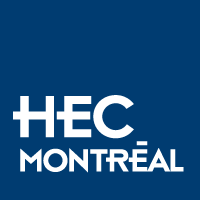
Les hautes directions peinent à émerger des vagues successives d’instabilités sanitaires, politiques et financières ayant déferlé sur les modèles et les pronostics économiques sur lesquels elles ont surfé durant des décennies. Comment se relever pour mieux performer en 2023? Pour Louis Hébert, une partie de la réponse se trouve dans l’acquisition de trois compétences clés ayant le pouvoir de générer des résultats probants et positifs.
Le professeur titulaire au Département de management de HEC Montréal constate que les leaders évoluent dans un contexte de turbulence « où le redémarrage des économies et de la société s’avère très complexe ». Et même si plusieurs aspirent à retrouver la fluidité naturelle des belles années, il observe que « les hauts dirigeants ont plus de facilité à fermer les robinets qu’à les rouvrir ».
Une leçon d’humilité
Selon Louis Hébert, cette « leçon d’humilité force la révision des priorités ». Il rappelle qu’au cours des récentes décennies, les organisations ont eu le luxe d’ignorer les facteurs macroéconomiques.
« On parlait de croissance et de mondialisation, sans égard aux causes externes susceptibles d’enrayer les mécanismes. Or, ces causes sont aujourd’hui à l’avant-scène! »
D’où l’urgence de développer trois compétences qu’il juge incontournables : la vigilance, la résilience et l’agilité.
1- Renforcer la vigilance
« On skiait en regardant le bout de nos skis », illustre Louis Hébert. « Pour les hautes directions, une connaissance plus globale de l’environnement s’avère aussi importante que l’exécution. En comprenant notre environnement, on évite les angles morts. »
Selon lui, les gestionnaires ont un devoir de vigilance, non pas en focalisant sur la concurrence, mais en considérant tous les facteurs de résistance cruciaux pour le présent et le futur de leur organisation.
Dans cette foulée, cadres et dirigeants gagneront donc à élargir leurs perspectives, en s’intéressant à la fois aux tendances micros et macros.
« Nous passons alors d’une vision concurrentielle à la création d’un écosystème où s’invite également la collaboration. »
2- Accroître la résilience
Louis Hébert croit que cette vigilance, compétence incontournable en 2023, se manifeste dans « un contexte où pendant une génération, les directions focalisaient sur l’efficience organisationnelle. »
Il évoque au passage les vénérés just in time, les flux tendus et l’optimisation des chaînes d’approvisionnement.
« Malheureusement, durant cette même période, nous avons perdu la notion de résilience. »
Selon lui, toute action stratégique doit désormais répondre à cette question : « Comment chaque maillon de la chaîne de valeur peut-il résister aux changements? »
3- Faire preuve d’agilité
« Si certaines hautes directions ont la capacité d’absorber les chocs successifs, se relancer est un tout autre défi », estime Louis Hébert.
Il juge les systèmes organisationnels fragiles, cite les carences en matière de personnel et de compétences.
« Le degré d’activité n’est pas celui d’avant. D’où la nécessité de passer à l’action et de redémarrer la machine, en visant l’atteinte d’un niveau plus opérationnel et productif. »
Le spécialiste rappelle que pour exercer et valoriser ces trois compétences, les chefs de direction doivent également intégrer à leurs pratiques les critères environnementaux, sociaux et de gouvernance (ESG). Et en simultané, répondre aux enjeux du personnel, des actionnaires, de la clientèle et des parties prenantes.
Formation Ascension : apprenez des meilleurs
Spécialement conçu pour ces leaders et la relève dirigeante, le programme Ascension, exclusif à l’École des dirigeants HEC Montréal, est en phase avec les défis actuels. Pour explorer ces enjeux décisifs, plusieurs personnalités du monde des affaires et des professeurs-experts participeront à cette immersion de cinq jours, dont trois journées en résidence dans un hôtel.
« Avec Ascension, nous passerons à la vitesse supérieure pour développer des perspectives et des visions plus profondes », signale Louis Hébert.
Observations, réflexions, études de cas concrètes, meilleures pratiques et échanges entre pairs enrichiront chaque journée de ce programme conçu comme un investissement rentable.
Inspirées et mieux outillées, les personnes participantes profiteront de ce précieux temps de réflexion pour construire et consolider les piliers les plus porteurs de leur organisation. En plus d’élargir leurs horizons et leur réseau de contacts.
- En savoir plus sur Ascension - programme pour dirigeants et relève dirigeante.
- Des questions? Prenez rendez-vous avec Aïcha Seghiri, chargée de programmes.


